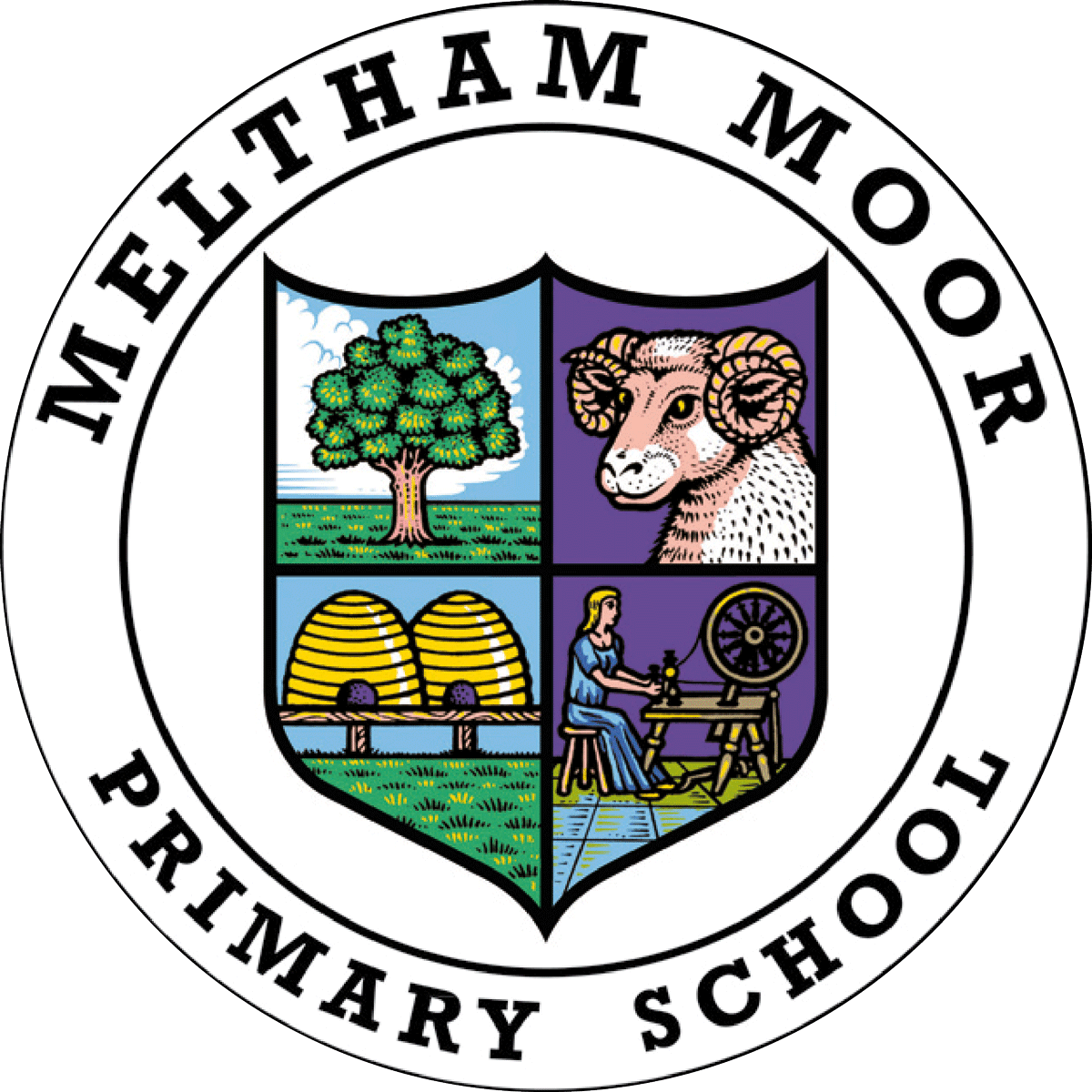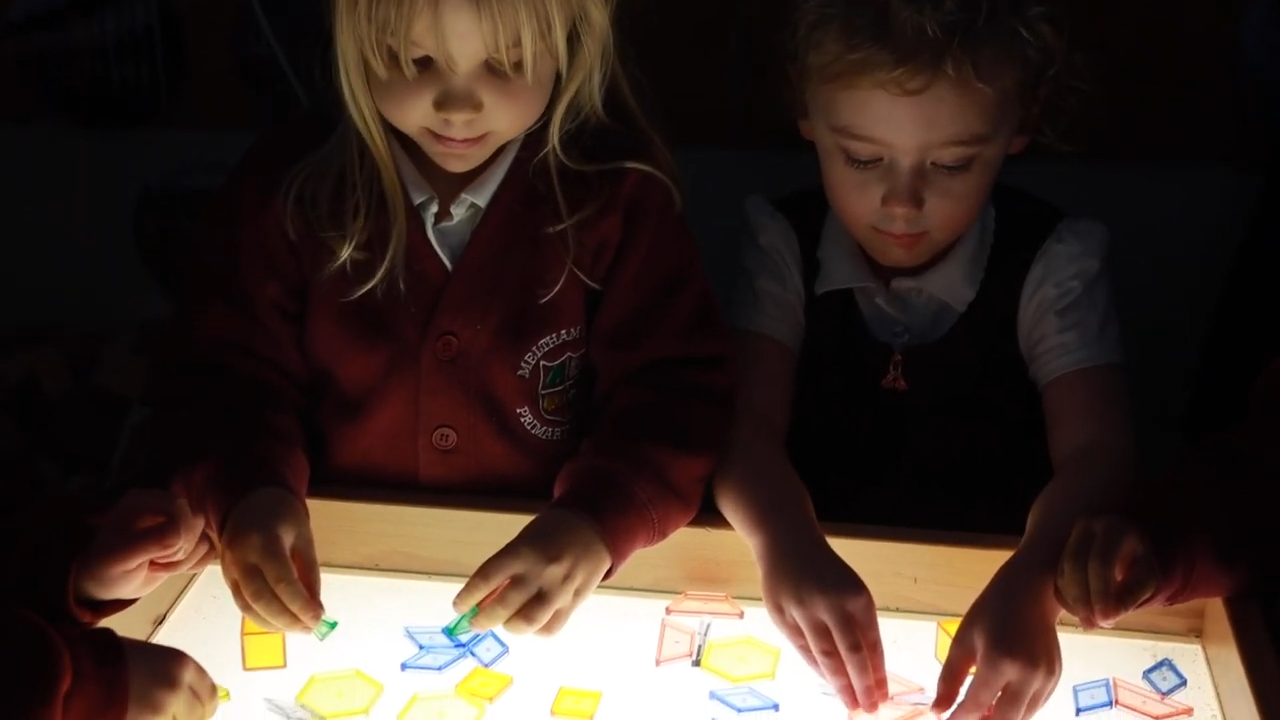Science
Science education at Meltham Moor begins in the Early Years Foundation Stage across a range of areas. In EYFS, science is explored through topic-based learning and follows the children’s interests through exploration and experiences with a focus on developing language ready for KS1. In KS1 and KS2, Science is taught as a discrete subject with clear and specific links to our other areas of the curriculum where applicable. Making these connections, as part of a holistic approach to the teaching and learning of Science, allows teachers to:
embed scientific language
forge cross-curricular links allowing children to actively build on their learning using working memory
give meaningful context for learning by building on cultural capital
ensure an appreciation of the importance of Science and how it affects our lives and futures.
The learning in Science is two-fold:
Children gain Science knowledge specific to the topic they are studying
Children develop their working scientifically skills which are needed to enable them to think like scientists.
Adherence to this policy not only ensures statutory compliance with the National Curriculum but also safeguards that all pupils have a solid grounding in Science and a positive attitude towards scientific knowledge and experimental processes.
-
The 2014 National Curriculum for Science aims to ensure that all children:
develop scientific knowledge and conceptual understanding through the specific disciplines of biology, chemistry and physics
develop understanding of the nature, processes and methods of science through different types of science enquiries that help them to answer scientific questions about the world around them
are equipped with the scientific skills required to understand the uses and implications of science, today and for the future.
At Meltham Moor we understand that it is important for lessons to have a skills-based focus and that the subject knowledge can be taught through this. We aim to encourage our children to be inquisitive throughout their time at Meltham Moor in the hope that this continues into KS3, KS4 and beyond. The Science curriculum fosters a healthy curiosity in children about our universe and promotes respect for the living and non-living. We believe Science encompasses the acquisition of knowledge, concepts, skills and positive attitudes.
The Science intent at Meltham Moor is that, throughout the programmes of study, the children of Meltham Moor will acquire and develop the key knowledge that has been identified within each unit of work and across each year group, as well as the application of scientific skills. Staff ensure that the Working Scientifically skills are built-on and developed throughout children’s time at the school so that they can apply their knowledge of science when using equipment, conducting experiments, building arguments and explaining concepts confidently and continue to ask questions and be curious about their surroundings.
-
Science is given a high profile across the school and teachers create a positive attitude to science within their classrooms. All staff reinforce an expectation that every child is capable of achieving excellent standards in science and the children are referred to as scientists thought the science lessons.
In KS1, LKS2 & UKS2 a definition of a scientist is displayed on the front every child’s book.
Classrooms have current science displays on the walls and key language is displayed alongside. Science is taught as a discreet subject in KS1 and KS2 every week for a minimum of an hour. Our whole school approach to teaching and learning Science at Meltham Moor involves the following;
Long term and medium term Science lessons are planned and arranged in blocks by the Science co-ordinator.
The Teacher responsible for delivering the lesson plans weekly sessions taking into account the needs and abilities of the individuals in the class.
Consideration is always given in respect of cultural differences and experiences and to children for whom English is an additional language.
All children with an EHCP are provided with challenging experiences in a flexible manner suited to their individual requirements.
There is a practical element to every science lesson.
At the beginning of each topic key language related to the topic is sent home for children to share with their families.
Parents and carers receive a yearly overview at the beginning of the school year explaining what topics are being taught and when, along with hints tips and websites to support their child’s learning.
The teacher works closely with the Science co-ordinator to enable links to be made with homework, class trips, displays and written work. This is a strategy to enable the achievement of a greater depth of knowledge across the school.
Through careful planning, problem solving opportunities are created which allow children to make discoveries for themselves.
Children are encouraged to ask their own questions and be given opportunities to use their scientific skills and research to determine the answers.
Planning involves creating engaging lessons, involving high-quality resources where possible, to aid understanding of conceptual knowledge.
To ensure that all children are making progress and to help identify any gaps in learning, precise questioning, quizzes, presentations by the children, recaps and summative and formal assessments are regular parts of the weekly lessons.
The Science delivered in each year group builds upon the learning and skill development of previous years. As the children’s knowledge and understanding increases and they become more proficient in selecting, using scientific equipment, collating and interpreting results, they become increasingly confident in their own ability to draw conclusions based on real evidence.
Key language and the Working Scientifically skills are embedded into all lessons which helps to ensure these skills are being developed throughout the children’s time at Meltham Moor. New vocabulary and challenging concepts are initially introduced through direct teaching.
-
Teachers are to explicitly teach the key concepts throughout their Science lessons. Children will build on these skills throughout their time at Meltham Moor and will become increasingly confident by end of their learning journey.
Ask and answer questions
Observe closely
Plan investigations
Identify and classify
Gather and record data
Report and present
Use scientific evidence
Great Scientists
When teaching Science, the teacher will demonstrate how to safely use scientific equipment, and the various Working Scientifically skills in order to embed scientific understanding. The teacher will always find opportunities to develop children’s understanding of their surroundings by accessing outdoor learning opportunities and workshops.
Equal Opportunities Consideration is always given in respect of cultural differences and experiences and to children for whom English is an additional language. All children with an EHCP are provided with challenging experiences in a flexible manner suited to their individual requirements.
Children are offered a wide range of extra-curricular activities, visits, trips and visitors to complement and broaden the Science curriculum. These are purposeful and link with the knowledge and skills being taught in class.
At Meltham Moor we aim to provide broader provision for the acquisition and application of knowledge and skills through events, such as Science Week and Wild Learning Days.
-
Our curriculum aims to teach Science in practical, exciting and engaging ways which allow all pupils to develop a sound knowledge of scientific concepts and first-rate Working Scientifically skills.
The Science Curriculum at Meltham Moor is planned to demonstrate progression in terms of age-related expectations. The practical, exciting and progressive lessons result in children who are engaged, confident and aspirational in the world of science. This means that pupils leave Meltham Moor Primary School as confident scientists who are well-prepared for the next phase of their education.
In EYFS impact is measured through ongoing teacher assessment against the Development Matters document, observations, and practitioner questioning and discussion, in line with best practice in the EYFS. In KS1 and KS2, impact is assessed through ongoing teacher assessment against the working scientifically progression document, low-stakes testing, tracking of knowledge in pre-and post-learning quizzes, photographic evidence and pupil discussions about their learning. Teaching staff look for misconceptions, gaps in learning, accounting for these when planning. Children are given opportunities to reflect and comment on the skills and strategies they have used in their learning and teachers respond to this feedback.
Through various workshops, trips and interactions with experts, the children of Meltham Moor develop a clear understanding of how science has changed the world and how it is a vital part of the world’s future.
Our children learn about the possibilities for careers in science, as a result of our community links and connection with national agencies such as the STEM association. These links ensure that our children have access to positive role models within the field of Science from the immediate and wider community. From this exposure, to a range of different scientists from various backgrounds, all children feel that they are scientists and capable of achieving great things.
Children at Meltham Moor overwhelmingly enjoy science. They are treated as talented and proficient scientists and, in turn, believe themselves to be talented and proficient scientists. This results in motivated learners with a passionate and respectful understanding of the world around them.


